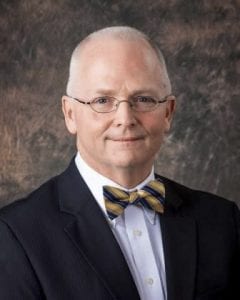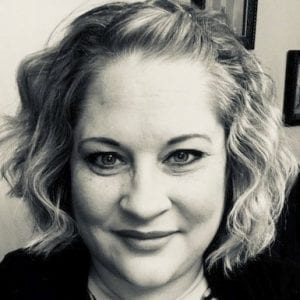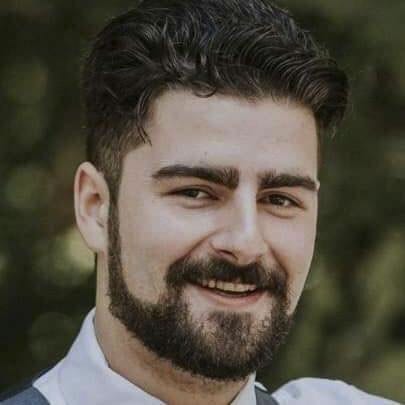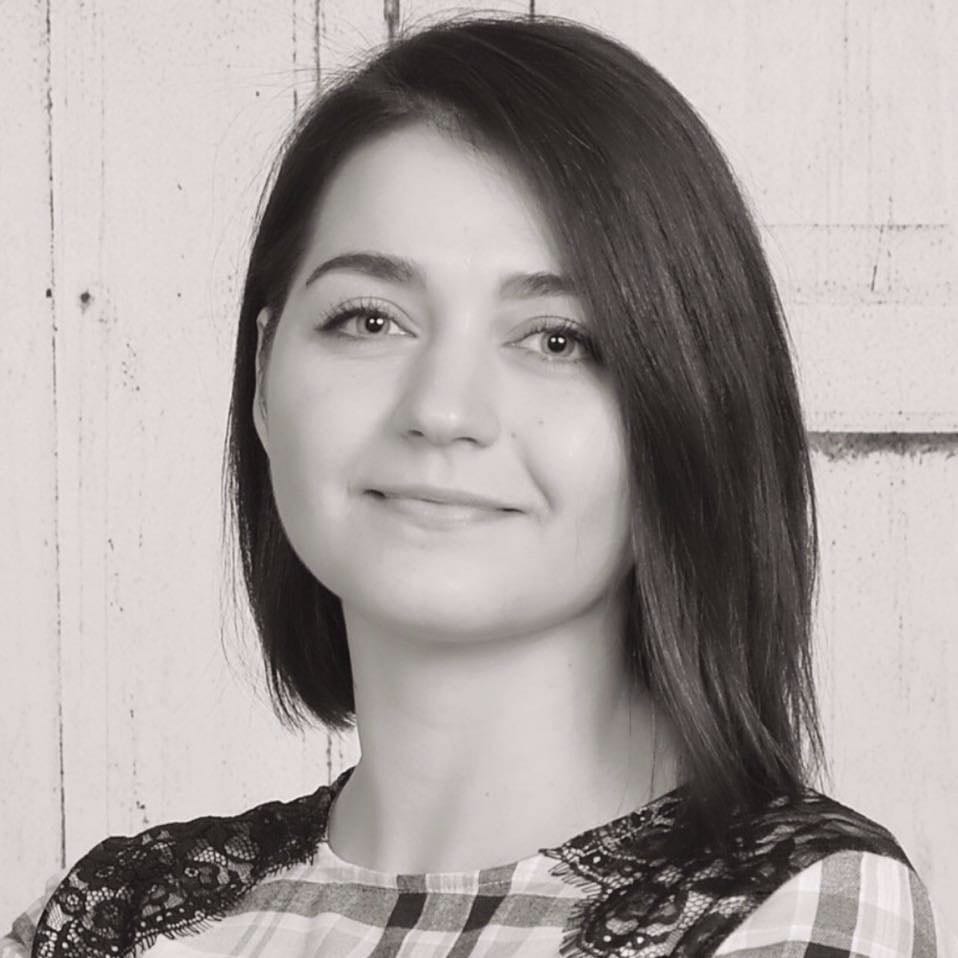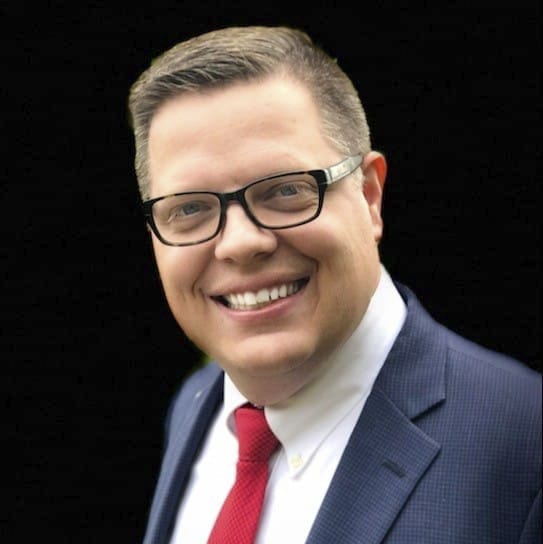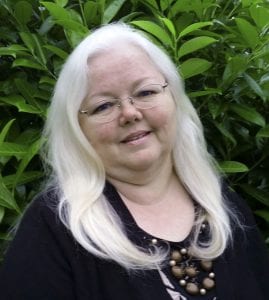Two candidates emerged from the debate over gun rights in the wake of Initiative 1639
BATTLE GROUND — NOTE: This story has been updated to correct an earlier error regarding Position 3, and whose seat was left open. The author apologizes for the mistake.
The Aug. 6 primary and general election is coming up quickly, and the city of Battle Ground may include two of the most closely watched races.
Steven Phelps, who has held the council’s position 3 since 2015, decided not to run for reelection. Meanwhile Philip Johnson, who has been a member of Battle Ground City Council since 2012 faces two challengers for Position 7.
Two of the newcomers hoping to join city leadership were key figures in the recent push for the council to adopt a 2nd Amendment Sanctuary City resolution in opposition of Initiative 1639, which tightened regulations on gun owners this year.
Shauna Walters is running for the Position 3 seat and Joshua VanGelder is in the race for Johnson’s seat. Joining VanGelder in that race is Katrina Negrov, a six-year Battle Ground resident who provides in-home care and works for a flatbed trucking company. Negrov did not appear at a recent candidate forum hosted by the League of Women Voters, and did not respond to a questionnaire sent by ClarkCountyToday.com.
Running for Position 3, aside from Walters, are Neil Butler and Candy Bonneville. Butler has previously served on Battle Ground’s Parks Advisory Board, but has not been in elected office. In the county’s voter’s pamphlet, Bonneville identifies herself as a Battle Ground resident since 2010, but has no previous elected office. She also did not respond to a list of questions provided by ClarkCountyToday.com and declined an invitation to participate in the League of Women Voters candidate forum.
Walters, who was unable to attend the League of Women Voters forum, did provide a list of written answers to the same questions asked of the other candidates. We have provided those answers here, along with excerpts from the other candidates. You can view the entire candidate forum put on by the League of Women Voters via Clark-Vancouver Television coverage embedded at the bottom of this article.
Candidates for both city council positions were asked the same questions, so we have blended their answers here.
Chelatchie Prairie rail development
On the question of whether potential industrial development along the Chelatchie Prairie rail line south of Battle Ground is good or bad for the community, Johnson noted that nothing can be done until the county fixes issues with a railroad bridge in Brush Prairie.
“I am in favor of the railroad project because Anderson, one of our largest employers, lives by railroad,” said Johnson. “And so the more railroad transportation we can get to them, I think is better for us. And so in the long run, it is a is pro for us.”
VanGelder agreed, saying any increase in infrastructure is beneficial for Battle Ground and the businesses in the community.
“It will give us the ability to increase the services that we can provide for other businesses that would also want to come into our area,” VanGelder added.
Butler largely echoed those sentiments, so long as the county decided to remain within the originally planned 500-foot distance from the rail line. The development, he maintained, would bring more jobs closer to Battle Ground. An overarching theme in the responses from the candidates was that they were in favor of providing more options for people who want to not only live in Battle Ground, but work nearby as well.
Walters deviated slightly from the other candidates, saying the line could be valuable in terms of bringing tourism to the region.
“I would like to see it used as a vehicle for tourism and could potentially be a catalyst to building our identity as our city grows,” Walters said. “I am aware there are issues that will need to be addressed, particularly with the bridge in Brush Prairie, before there can be a serious look at using the rail line beyond Battle Ground.”
Immigrant rights
On the issue of immigration, the candidates generally held that it wasn’t the place of city governments to decide the issue.
“To be very brief, the Welcome Wagon is out,” said Johnson. “If anyone here would like to move to Battle Ground feel free. It’s a wonderful place to live. We don’t really have any requirements at all.”
“I believe that everyone has rights, and those rights are granted by the Constitution, but given by God,” said VanGelder, who considers himself a Constitutional Libertarian. “And so by supporting the rights of all individuals, I believe that we can encourage minorities and immigrant groups to come and to be involved in our community, not suppress them.”
“Whatever organization we belong to, (we are) there to be able to help build up our neighbors through their difficulties and struggles,” added Butler. “And if it’s because of their immigration or anything else, we as neighbors have a responsibility to help fulfill that. But it’s not the responsibility of our cities to do so.”
Battle Ground growth
On the question of future growth in the city of Battle Ground, the candidates varied on where they feel focus should be. Asked if the city has enough land for residential and commercial growth, Butler said he feels the city has done a fair job of balancing things.
“Growth within the city is this complicated puzzle because you’re trying to balance the rights of private property owners compared to the needs of the community,” he said. “And I feel like the city does a good job of trying to achieve that balance.”
For his part, Johnson disagreed slightly, saying Battle Ground is quickly running out of real estate for commercial and industrial growth.
“Part of that is the urban growth boundaries are kind of constricting us,” he said. “And the other part of that is the way we’re situated you would run into residential neighborhoods, so they would start butting up against each other. And at that point you have a problem with folks who aren’t really interested in having an industrial or commercial growth next to their house.”
Johnson said the city has received around 160 home building permits this year, which is a slightly slower pace than pre-recession growth, but still a healthy pace. He said his preference would be to cut back on regulations in some areas to make it easier for people to come into the city.
VanGelder agreed, saying that he is generally in favor of little government regulation.
“I think that the market does a fairly good job of controlling itself when it has the freedom to do so,” he said. “And so I would tend more towards opening more land for more general use and expanding the zoning between the different zoning categories.”
Walters wrote that she loves the small-town feel of Battle Ground, but is also realistic in her understanding that growth will happen either way, so it needs to be managed.
“I feel that if we want to create a place to live and work, we will need to start putting greater emphasis on attracting mid-large sized businesses with a small environmental footprint,” she said. “I would like to see some tech and engineering companies invest in our area. Residential housing has taken precedence over industrial growth, but the city has not kept up with infrastructure to support it. The recession was a long time ago, but we are still feeling the effects in our revenue and ability to undergo large road construction projects. We will need to expand our urban growth boundaries and slow the explosion of housing developments to ensure we have the space to accommodate businesses that want to make their home in Battle Ground.”
Battle Ground community visioning
The city of Battle Ground recently began the process of redefining what their vision for the future should be. That included a lengthy public involvement process to determine what areas of growth were most important to residents. Among those were concepts of identity, prosperity, well-being, and growth. The candidates were asked to rank those in order of importance.
Johnson put prosperity first, followed by community well-being, identity and growth. “I have said for years, if you watch the morning traffic going out of Battle Ground south, it’s like little red ants marching south, all you see his tail lights.”
Butler largely agreed with Johnson’s assessment, adding that he currently commutes to Vancouver for work each day, along with most of the people in his neighborhood.
“As we’re able to be within our own city, that allows us to be able to really drive our identity as a community,” said Butler. “That identity that many who have lived in Battle Ground for a long time really have come to appreciate and feel like has been lost.”
VanGelder said his top priority would be identity, followed by growth, well-being, and prosperity.
“Like I’ve said over and over, personal rights, property rights, all of that sort of thing is foremost of my concerns,” he said, “and so promoting people’s abilities to feel that and appreciate that, and then that will trickle down into all the other areas.”
Walters said she would stress community well-being first, since it is important for people to feel secure in their homes and interacting with others. Identity, she said, would flow from that sense of well-being.
“Having grown up in north Clark County, I have seen many changes to our city,” Walters wrote. “Many long-standing businesses have come and gone that added to the small-town ambiance. The Old Town revitalization is a good first step in establishing our identity.”
Walters added she especially appreciates the idea of an interconnected trail system around Battle Ground, which was a key element of the visioning project.
“I feel that it is important for people to have safe places to get out and enjoy our beautiful scenery,” she said. “Along with the Chelatchie Prairie rail line, a concurrent trail network could add to the tourism aspect of our city.”
Homelessness and affordable housing
While homelessness is a relatively new problem in north Clark County, it has been growing steadily more apparent in and around Battle Ground. The candidates were asked how they felt the city could best address those issues.
Walters said she recently attended a meeting of the “Just One Thing” group, which stresses bringing local charities and families in line with the city.
“The program is intended to connect our homeless and at-risk of homeless population with existing resources such as counseling, food banks, health clinics, clothing closets, job placement services to empower them to pull themselves out of their own situations,” said Walters, saying she favors the “hand up” approach, as opposed to a “hand out.”
“I look forward to being more involved with this group and greatly reducing and hopefully eradicating homelessness,” she said.
Butler said issues of affordability outside of Battle Ground have forced a lot of people to live with friends or relatives outside of the major cities, leading to more of the “couch surfer” type of homelessness in places like Battle Ground, rather than the open and chronic homelessness seen in Vancouver or Portland.
“I don’t believe that it is the sole responsibility of the city to handle that,” said Butler. “The problem is too big for any one entity, and the role of the city is to help coordinate and facilitate with other organizations to be able to address this issue in an appropriate manner.”
Johnson said he would use the word “in-betweener” to describe most of the homeless in Battle Ground, though he disagreed that chronic homelessness is solely a big city issue.
“We have quite a few treed areas inside the city, and you can see tents and other shelters inside the trees, if you will,” said Johnson. “I don’t think it’s necessarily the city’s responsibility, but we are working with private developers to try to get more affordable housing for everyone. And if that can work out, then I think that might alleviate most of our problems.”
VanGelder said he believes the homelessness issue is tied closely to the area’s opioid and heroin dependency epidemic, but agreed the city should act only to help facilitate help from other groups.
“I think that the city can partner with churches and other programs, such as the drug reduction program that we have been working on recently,” said VanGelder. “Not just pushing them out, or forcing them away, but finding a way to help them and not just get rid of a problem, so to speak, but to help put them back on their feet.”
Battle Ground’s biggest issues
The final question in the League of Women Voters forum asked the candidates to name the top three issues facing Battle Ground over the next three years.
“Growth, water, and sewer,” topped Johnson’s list. Battle Ground currently gets most of its water from Paradise Point, as well as a number of wells around town. The city also has an agreement with Clark Public Utilities to have fresh water brought in.
“And then once we use that water it has to go back to the river,” Johnson added. “And so it takes another 10-mile journey across the county. That, too, is not cheap. And so we’re working with the Hazel Dell Sewer District on that as well. As people come they have expectations. Of course water and sewer top the list.”
VanGelder said he sees traffic, land zoning, and community involvement as the biggest challenges facing Battle Ground. Cost overruns have delayed a major project to relieve congestion at the intersection of Highway 503 and Main Street. The city struggles to fund projects to simply manage its existing roads and has been hard-pressed to fund improvements to the layout of traffic throughout the growing city.
On community involvement, VanGelder said his eyes had been opened recently as he started attending city meetings on a more frequent basis.
“I feel like a lot of people within our city don’t actually know what’s going on,” he said. “So just finding ways to communicate better with the community and let them know how they can be involved.”
Butler said he would focus mostly on managing growth, infrastructure, and public safety.
“When it comes to our infrastructure, we have some serious water needs. It’s complicated, and it’s involved, and it’s going to require a lot of time and effort to be able to follow through and get it completed in a way that benefits the city,” said Butler. “And that’s the same issue with the roads. It’s expensive. There’s a backlog and that’s going to require a lot of work.”
Walters said the fire annexation issue was top of her list. The city will ask voters next year to separate the levy they pay for fire services, essentially paying Clark County Fire District 3 directly for fire coverage, freeing up city funds for other necessities. But the city will need to determine whether people are willing to bear the entire added cost, or offset the increase somewhere else.
“Previous surveys of Battle Ground residents indicate that public safety is the number one concern,” writes Walters. “Annexation will also allow for future planning and expansion if needed. The current fire station is in poor condition and is too small to accommodate projected growth in the city.”
Walters said her second issue is public safety. While violent crime is rare in Battle Ground, property crimes and traffic violations have been increasing.
Finally, Walters said managing and balancing growth in the city would be her third major challenge.
“We need to find the right balance of business, industry, and residential housing while supporting and maintaining our infrastructure.”
You can read more about the candidates on their campaign websites:
Position 3:
Position 6:
Philip Johnson (no website listed)




